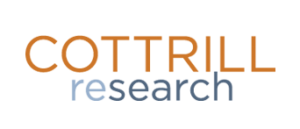In the article, Staying Smart: Industry Firms Refine Knowledge Management to Build On What They Know, ENR’s Debra K. Rubin eloquently writes about the critical importance of implementing knowledge management initiatives, especially in light of accelerating changes brought about by the advancement of Big Data. Even though the article is geared for the AEC (architecture, engineering, and construction) industry there is so much valuable insight about Knowledge Management, that it is an important read for professionals in all industries. As a tease, here are a few key highlights from experts quoted in the article:
“We see the rate of change speeding up—whether it’s codes, software, materials, expectations of clients or work across multiple geographies—with demands on quality and speed going up while schedules and budgets go down and baby boomers are retiring…So, there’s this huge, increasingly difficult-to-navigate knowledge problem in the AEC industry, and these are all things that … an intentional approach to knowledge management can help in keeping firms competitive.” (Christopher Parsons, founder and CEO Synthesis)
“’Our competitive advantage [today] is not just that we’re supersmart but in how we bring other people together. It takes new skills.’ This is particularly true as more firms tap into what employees have collected in their heads through experience—‘tacit knowledge that is unverbalized…We have blind spots. We don’t always know what we know.’” (Katrina Pugh, director of the Information and Knowledge Strategy Program at Columbia University)
“From machine learning and natural language processing to full-fledged cognitive and artificial intelligence [AI] applications, organizations are just starting to grapple with the potential behind these new technologies and the resulting shifts in how employees access and analyze corporate knowledge.” (Lauren Trees, APQC principal KM research lead)
[Stantec] “focused on ‘patterns of how people are interacting with each other’ to determine ‘who’s really central in a community and important to subject matter expertise’… It also is building ‘a skills matrix database, so we don’t have silos in the organization and can create robust networks against individual departure.’” Stantec is also ‘building network thinking’ into performance reviews. Leaders are responsible for financial performance and how they connect and enable the people around them. (John Wanberg, Stantec knowledge strategy manager)
